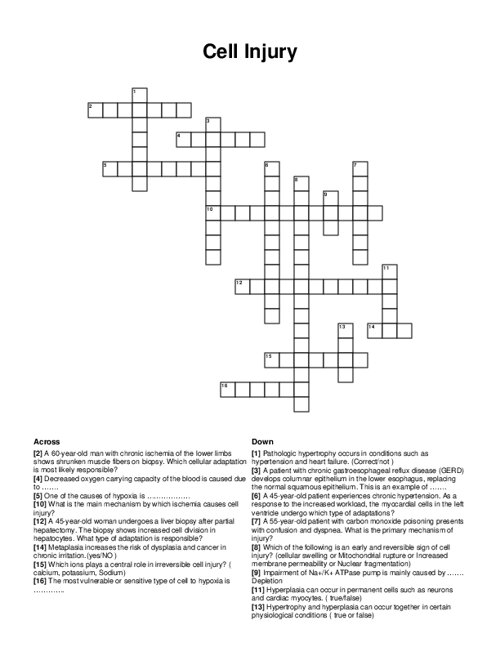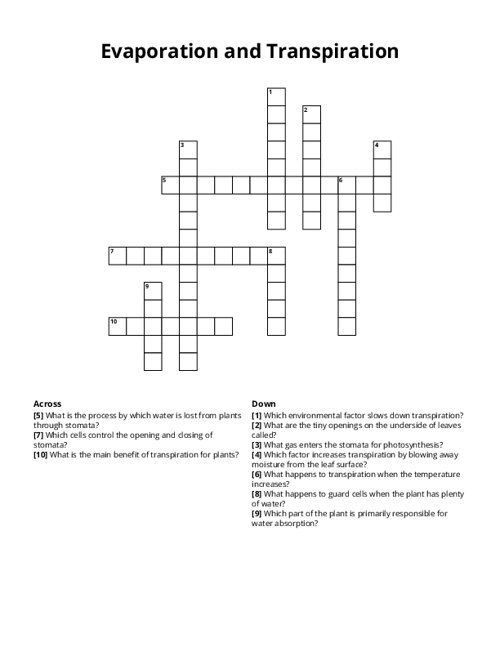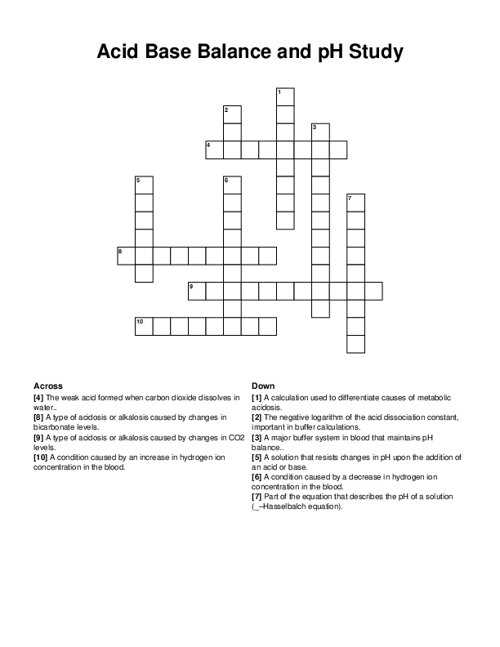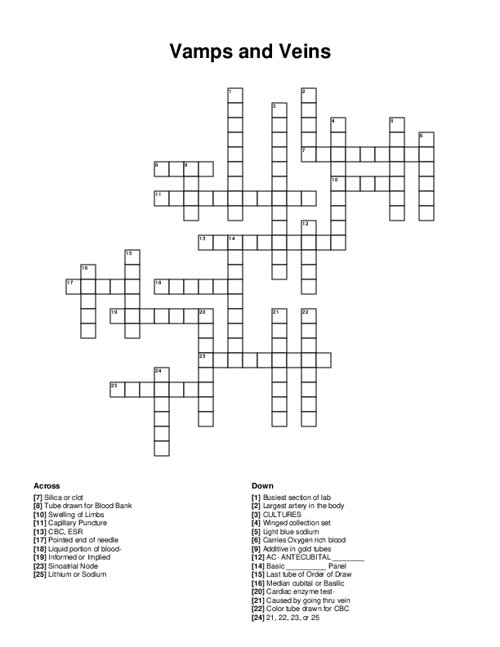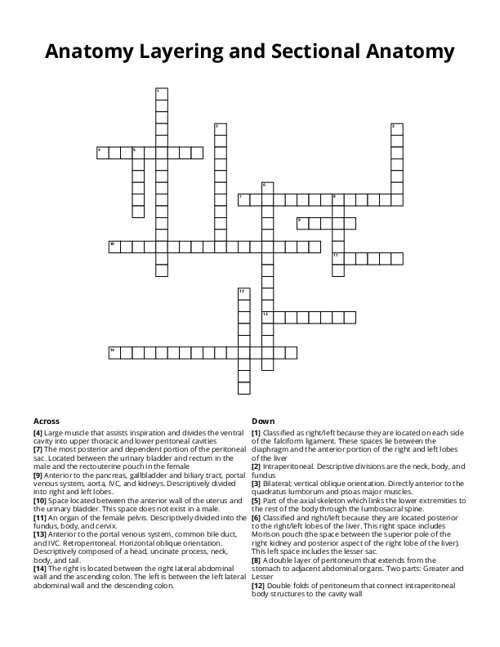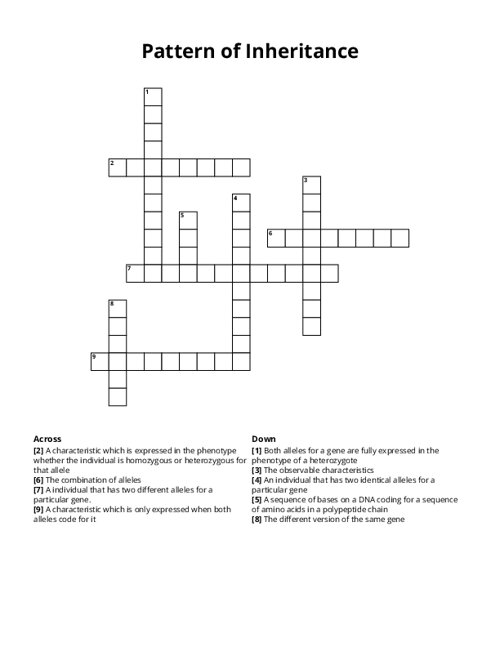Cell Injury Crossword Puzzle
Download and print this Cell Injury crossword puzzle.
Related puzzles:
QUESTIONS LIST:
- hypoxia : a 55-year-old patient with carbon monoxide poisoning presents with confusion and dyspnea. what is the primary mechanism of injury?
- cellular swelling : which of the following is an early and reversible sign of cell injury? (cellular swelling or mitochondrial rupture or increased membrane permeability or nuclear fragmentation)
- anemia : decreased oxygen carrying capacity of the blood is caused due to …….
- neuron : the most vulnerable or sensitive type of cell to hypoxia is ………….
- hypertrophy : a 45-year-old patient experiences chronic hypertension. as a response to the increased workload, the myocardial cells in the left ventricle undergo which type of adaptations?
- atp depletion : what is the main mechanism by which ischemia causes cell injury?
- hyperplasia : a 45-year-old woman undergoes a liver biopsy after partial hepatectomy. the biopsy shows increased cell division in hepatocytes. what type of adaptation is responsible?
- ischemia : one of the causes of hypoxia is ………………
- true : hypertrophy and hyperplasia can occur together in certain physiological conditions ( true or false)
- false : hyperplasia can occur in permanent cells such as neurons and cardiac myocytes. ( true/false)
- yes : metaplasia increases the risk of dysplasia and cancer in chronic irritation.(yes/no )
- correct : pathologic hypertrophy occurs in conditions such as hypertension and heart failure. (correct/not )
- calcium : which ions plays a central role in irreversible cell injury? ( calcium, potassium, sodium)
- atp : impairment of na+/k+ atpase pump is mainly caused by ……. depletion
- atrophy : a 60-year-old man with chronic ischemia of the lower limbs shows shrunken muscle fibers on biopsy. which cellular adaptation is most likely responsible?
- metaplasia : a patient with chronic gastroesophageal reflux disease (gerd) develops columnar epithelium in the lower esophagus, replacing the normal squamous epithelium. this is an example of …….
